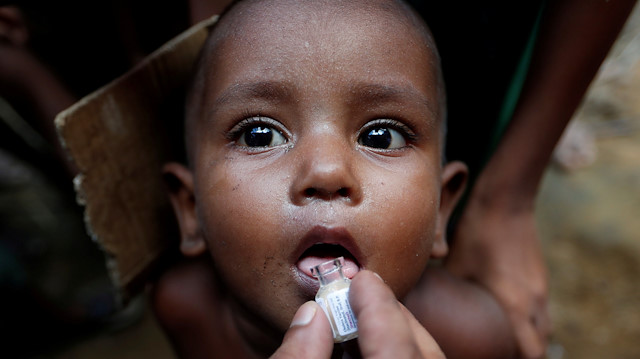
Many children in Bangladesh are facing severe physical and mental discomfort, particularly in the capital Dhaka, as they have been kept at home for a long time and are unable to socialize with other children due to COVID-19 restrictions.
Though the government has kept remote teaching methods accessible to students since the closure of educational institutions in March last year, parents and experts prefer in-person teaching as virtual classes have been causing physical and physiological stress on children for almost a year now.
A field-based study conducted by 15 international and local organizations, including UNICEF, Save the Children and World Vision International, has shown that children are facing mental and psychological discomfort as their normal childhood is missing during the current pandemic.
The study unveiled that 55% of children shared their frustration with the state of staying at home, while another study said 42% of students’ lives have become troublesome due to the pandemic’s long-term closure of schools. And, 52% were concerned about the effects of the pandemic.
Munmun Nahar, a mother of two children and a school teacher by profession in Dhaka, shared her experience of the effects of the pandemic with Anadolu Agency.
“I feel changes in my kids’ behavior. They seem to be under stress as they have not been able to sleep well and have woken up with anxiety intermittently during the night. I have consulted health practitioners, and now I pay special attention to them.”
Since the closing of schools, she described, most of the time her kids are spending their time at home, playing on smartphones or watching TV programs, or engaging in indoor activities.
“A few months ago, a doctor advised my 8-year-old elder son, a class III student, to have an eyeglass because of the excessive use of mobile phones during the pandemic. The younger one, a six-year-old boy, couldn’t sleep well at night,” she said.
- Expert account
Because of frequent exposure to a variety of content on social media, experts say, children have developed various kinds of problems.
Owing to environmental inequalities and nuclear family structures, children living in cities are facing more challenges than rural children. Moreover, as children need friends of their age, they face loneliness as a result of the closure of educational institutions.
For proper mental health care, children have to play with friends in parks and playgrounds. However, Dhaka city lacks certain facilities that concerned experts.
Zarin Zeba Khan, a senior official of World Vision International, told Anadolu Agency that in their recent study of the pandemic, over 50% of the children were feeling stressed and struggling with anxiety.
“We mostly overlook what children face, feel, and their social and personal behavior. We need to read their mind to provide proper nursing to our kids and adolescents,” she said.
“In our study, we dangerously found that some children’s anxiety levels rise to such a degree that they think of suicide. Our education and assessment system now needs to be reformed to help them get relief from the existing academic pressure,” the expert who conducted the study stated.
- Government initiatives
Syed Md Golam Faruk, director-general of the Directorate of Secondary and Higher Education, told Anadolu Agency that they have already given health advice to all educational institutions.
“We don’t have a government-level study to figure out how many students are facing mental problems, but we fear that some of them are facing mental stress,” Faruk said.
He informed that the Education Ministry has started providing training to some 100,000 teachers across the country on mental health so that they can identify and provide primary treatment to students if they faced any mental health problem.
If there are serious cases, these qualified teachers can refer them to health professionals, the official said, adding that they have also launched a helpline number so that parents can avail health-related support if they need it.
“Yes, we have problems in cities like Dhaka because of the lack of open space and playgrounds,” Faruk responded to a question. “Because of the overall environment, we do not find such instances related to mental health in rural areas,” he added.
Faruk promised that the government would take several steps to involve children in extracurricular activities after the opening of schools to ease academic pressure.
Bangladesh says schools will soon open only after the proper health guidelines that have already been distributed to the school authorities have been maintained.
According to UNESCO, 1.2 billion students worldwide have been affected by the closure of educational institutions in 144 countries. Whereas in Bangladesh, about 37 million students, including 17 million in primary education, are out of in-person education and discontinuation of academic activities.














